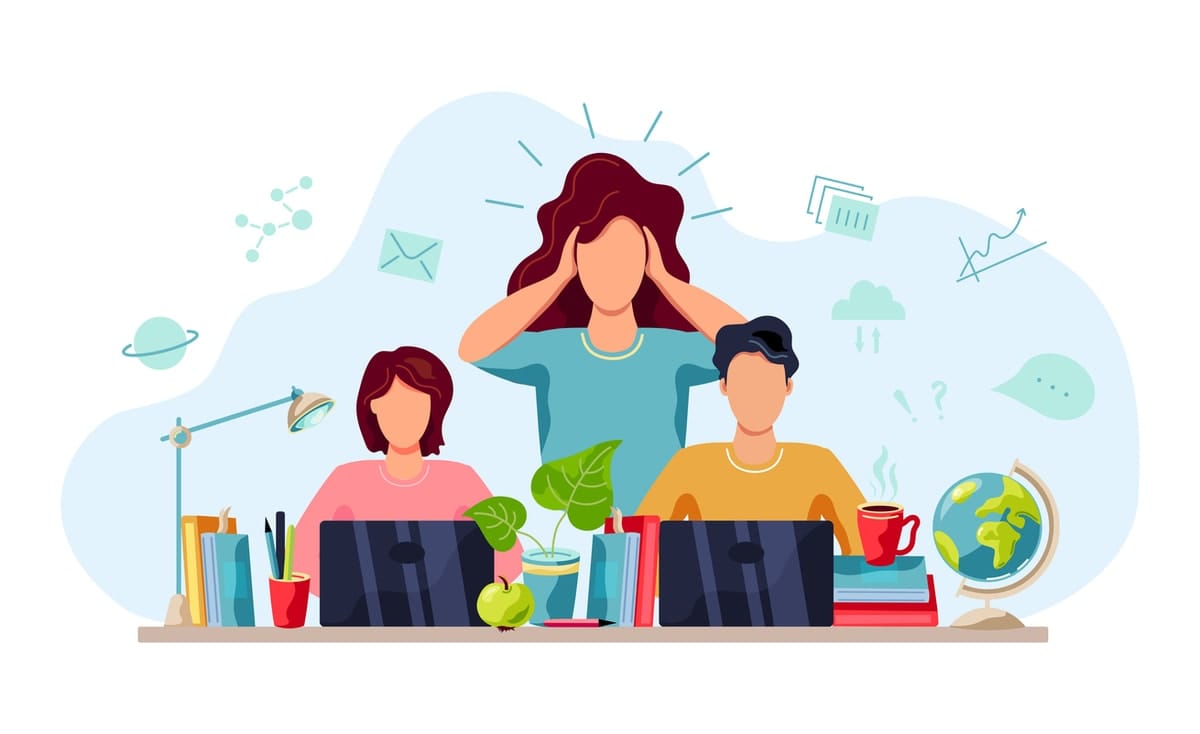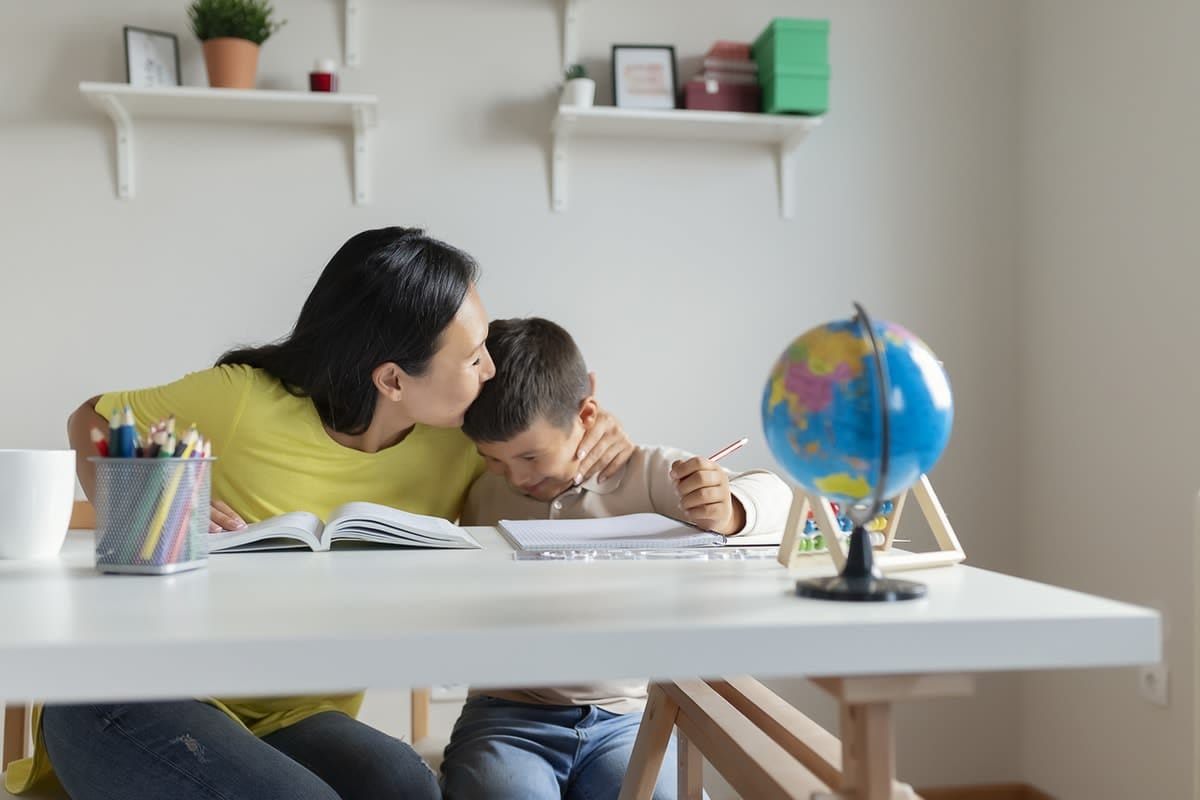
Schooling during the COVID-19 pandemic has altered the way parents respond to educational programs.
In fact, stepping into the role of teacher, support staff and, in some cases, principal, during the lockdown through online learning provided most parents with a window into how their children learn, and the best methods of accommodating their individual needs.
This information will be essential for teachers as schooling resumes in the post-COVID phase.
Most students in Australian classrooms have experienced a degree of remote lessons during the course of 2020. In Victoria, online teaching and learning became part of an accepted norm due to stringent lockdown measures, in an attempt to reduce virus spread.
These measures were seen rarely elsewhere in the world.
More parental responsibilities
While this created disruption and interruptions to individuals across sectors, it also created additional responsibilities for parents, who were forced to step in as surrogate teachers during pandemic schooling.
There was an abundance of articles online reflecting on the dilemmas of schoolteachers as they adopted new methods of teaching, utilising video calling and online learning platforms.
Fewer articles focused on the positions of parents – in fact, some adopted a mildly humorous view of home schooling. One amusing video circulating on social media targeted the complaints of a mother, as she juggled the schooling responsibilities of her children. Actually, she could not have said it better.
Schools cannot proceed as normal post-pandemic. Instead, they’re likely to adopt this form of resilience, and incorporate suggestions from their most powerful allies – parents.
We live in the hope that schooling will resume as we were accustomed to in the past. However, we anticipate that the lessons of 2020, especially those from parents, should inform the practices of the future.
As part of our study, we investigated the experiences of parents, with a view to gathering information about how their views can best inform education in the future.
We talked to a range of parents, reflecting with them on the lessons they learned from the lockdown. It was evident that pandemic schooling had profoundly altered parental views of teaching and learning.
Teachers are often well-positioned to advise regarding teaching, support and learning. However, when pandemic schooling became the norm, parents had to step into this role with no background knowledge.
Given their one-on-one support of their children, our study considers them to be vital voices, especially in the post-pandemic phase. The proximity of support offered by parents positions them to not only learn about their child’s commitment and performance, but to also review curricular issues that may impact on student engagement in the future.
Here are five lessons we’ve so far discovered that parents offered to teachers:
Teacher innovation through online learning
While most teachers rose to the challenge of online teaching using a range of electronic measures and learning platforms, it was evident that many struggled to cope with online delivery. One parent acknowledged, “some teachers performed much better than others”, even though both teachers belonged to the same school setting. It was not necessarily the case of older teachers struggling with the challenge; it was more a case of how innovatively and creatively they used their resources.

Understanding individual student needs
A parent in our study said she was taken aback by a teacher’s comment over a Zoom call that he had “never seen her before”, confirming for her that teachers should be more attentive of individual student needs. The student in question was new and had only spent about a month in face-to-face classes before online teaching began.
Many parents acknowledged that the online learning spaces are often isolating and disconnecting, with many students preferring not to use their cameras, remaining unseen by the teacher and the rest of the class. This prevented essential forms of communication and engagement between the student and their peers. One parent suggested that teachers ensure that cameras were on at the start, to ensure that students were more accountable in the session.
Focus on the student instead of the curriculum
Early evidence reveals that parents would prefer for teachers to focus on social and emotional wellbeing rather than on the curriculum. Most students appear to be keeping up with academic work; however, social isolation has affected their mental health.
Teachers should be mindful of this when students return to school. For students who face challenges with organisational skills, online learning has compelled them into a “huge learning” curve, and forced them to be self-motivated and self-organising.
Personalised learning
Parents saw the value of one-on-one interaction between teachers and students, and noted that even “a short meeting between a teacher and a student” may have more effectively connected the student to their learning and content delivery.
Parents have become very aware of children's educational needs as a result of supervising their learning at home. Fostering a personalised relationship becomes more important when transitioning from learning off-site to face-to-face.
Collaborative relationships
Having occupied the role of surrogate teacher for several months, some parents were keen to play a more active role in their children's educational programs. With the post-COVID world still being somewhat indeterminate, and many educational institutions attempting to find their feet, parents were keen to offer their support to schools, and even individual classroom teachers, as they establish that equilibrium.
Parents acknowledged that teachers had specialised understanding, and that pedagogical expertise was certainly their arena. However, they were keen to act as resource hubs, to assist schools with determining the best ways to accommodate their children.
This is especially important for students who are marginalised and who may have specific learning needs. For children who speak other languages at home, the importance of building relationships between home and school are particularly highlighted.
Read more: Inclusive education during COVID-19: Lessons from teachers around the world
Most psychologists and mental health personnel agree – the focus as we emerge from isolation should be on student wellbeing. In Emily St John Mandel’s novel Station Eleven, which documents the collapse of civilisation following the Georgia flu, the writer acknowledges at the close, “what else might this awakening world contain”. In essence, we understand the need to learn and progress, for progress we must, and as educators heed the voices of parents.
Perhaps it’s time to adopt the old adage, and reinforce that it does indeed take a village to raise a child. The work of teaching rests in the hands of the entire community.
Christine Grove was a senior lecturer at Monash University at the time of writing this article.





